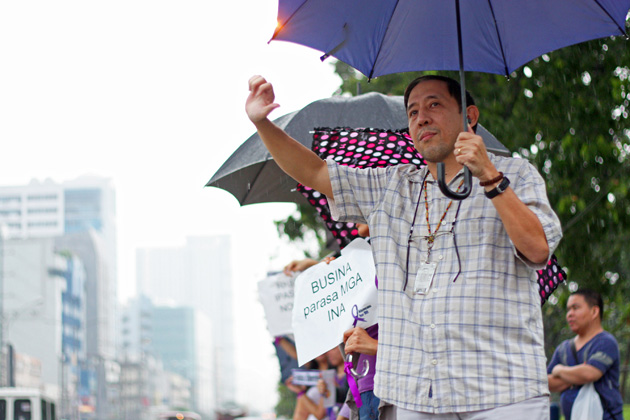MORE THAN six months since its passage, the Reproductive Health (RH) Law has again been placed under fierce debate following the restraining order imposed by the Supreme Court (SC) on its implementation.
A 120-day restraining order on the law was issued last March 19 after petitioners questioned its constitutionality before the High Tribunal. This was extended indefinitely last July 16, further blocking the implementation of the law.
However, many question why the debates exist at all, especially given that the SC, as the interpreter of legal issues, is arguably not the appropriate body for discussions involving faith or medicine.
During day one of the debates, Chief Justice Maria Lourdes Sereno said herself that, “The SC might not be the best forum [for the RH Law].”
As of now, there have been four sessions held before the SC.
Back and forth: The highlights
The four sessions of debate have allowed the two sides to display their main arguments. They have also shown where the sympathies of certain justices lie.
Anti-RH petitioners have presented three arguments. Firstly, claiming that contraceptives are abortifacient, anti-RH lawyer Maria Concepcion Noche argued that the law violated the constitutional right to life. It was later contended that the law is “arbitrary,” focusing on an exclusive sector and disregarding other issues and beliefs. Lastly, the law’s implementation in the Autonomous Region in Muslim Mindanao was opposed.
The anti-RH petitioners faced strong opposition during the third session, however, with arguments from the pro-RH respondents.
Pro-RH respondent Solicitor General Francis Jardeleza asserted that the debate should be centered on whether the Congress passed the law “in good faith,” regardless of the individual beliefs of the justices on the matter. He also argued that there were insufficient grounds for the case, as there has been neither prosecution nor questioning of any Food and Drug Administration-approved contraceptives.
Associate Justice Antonio Carpio also said that the case questioned the law on a hypothetical level. He noted that, for arguments to be sufficient, they must step up to where the law is proven to be unconstitutional under many facets. It was also emphasized that there was a “compelling state interest” in the RH Law, with the nation’s commitment to the Millennium Development Goal of reducing maternal and infant mortality.
However, anti-RH proponent Associate Justice Roberto Abad heatedly argued in Jardeleza’s interpellation that the law echoed Hitler’s policy on sterilizing the Jews to significantly decrease their population.
“[You are saying,] ‘The poor is an inconvenience to us. We want to eliminate their size,’” he said.
On the fourth day of the debates, the pro-RH petitioners, through RH Law proponent Atty. Edcel Lagman, focused on their interpretation of the Constitution’s “right to life” provision. It was argued that the said provision was made solely to prevent abortion.
Lagman also pointed out that the banning of contraceptives is “oppression” and that it is widely accepted as the best approach against unwanted pregnancy. He adamantly argued against allegations that the law promotes only artificial family planning methods, saying that it “promotes all.”
The right forum?
Throughout the debates, concerns have been aired as to whether or not the SC is the appropriate venue for the discussion of the contentions.
This was especially apparent on the first day of the debates, after Noche argued that contraceptives are abortifacient. Chief Justice Sereno stressed that the SC must exercise “judicial restraint,” as the justices are not qualified to take up questions regarding medicinal science.
Carpio also reminded Noche that the extent of abortifacients is not a question for the SC.
“If you are asking us to decide on the abortive capabilities of intrauterine device, then you are admitting that you came to this Court prematurely,” Carpio said. “Why are you here?” he added.
However, there are many who believe that the SC is in fact to the appropriate medium.
Lexy Senson, president of the Movement for Ignatian Initiative and Transformative Empowerment, is one such person. “Initially, I wasn’t sure [if the SC is the right agency] because I didn’t know what the Supreme Court had to do with the debate. After quick research on its functions though, ideally, potentially, it could be. After all, it is the Supreme Court which decides whether or not something is unconstitutional, which is the biggest issue of the RH debate anyway.”
Assistant vice president of the office of membership in the Ateneo Debate Society Denise Recomono agrees with this sentiment. “The Supreme Court is the ultimate arbiter and guardian of the Constitution… As such, I actually think that it is necessary that the debate occurs in the Supreme Court so that each argument and response given by both sides may be placed under the scrutiny of the dictates of the Philippine Constitution,” she said.
As of press time, the debates have been adjourned. They will resume on August 20 for the fifth and last session.




